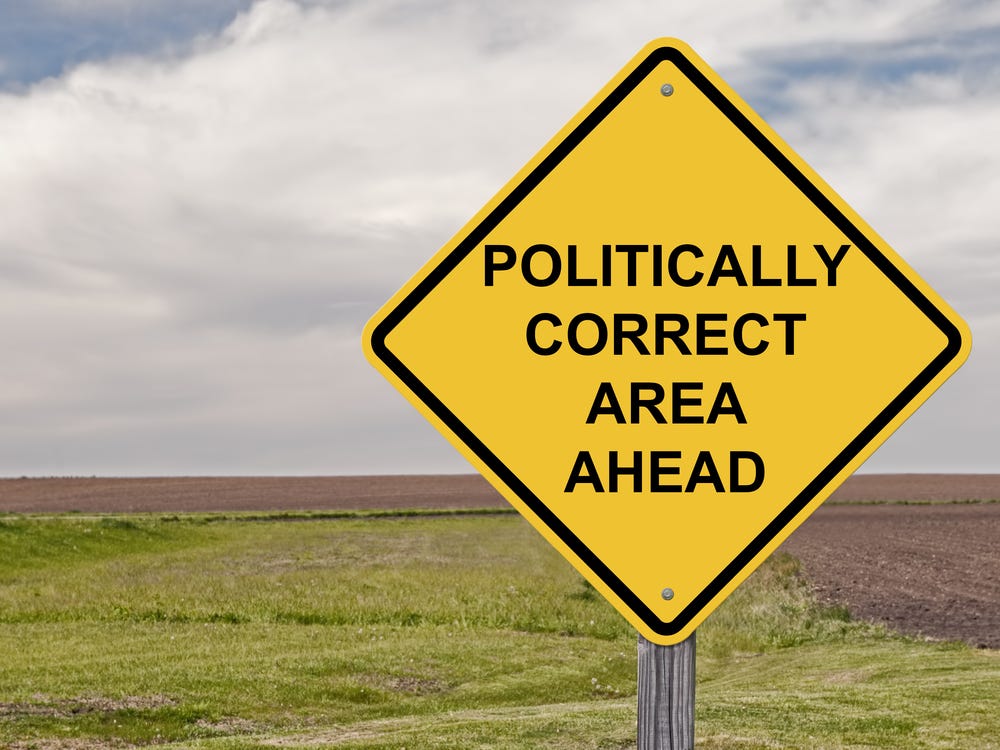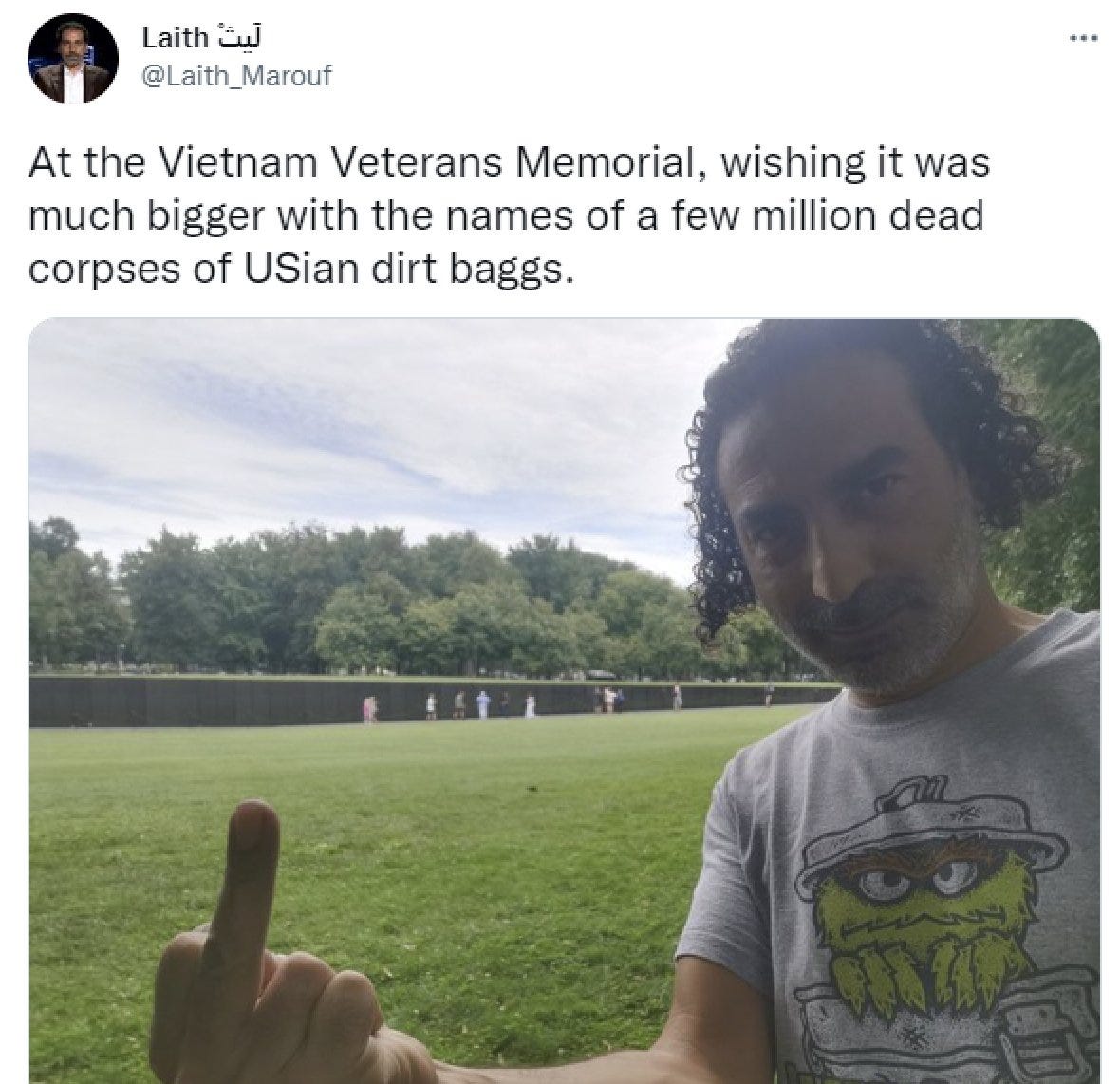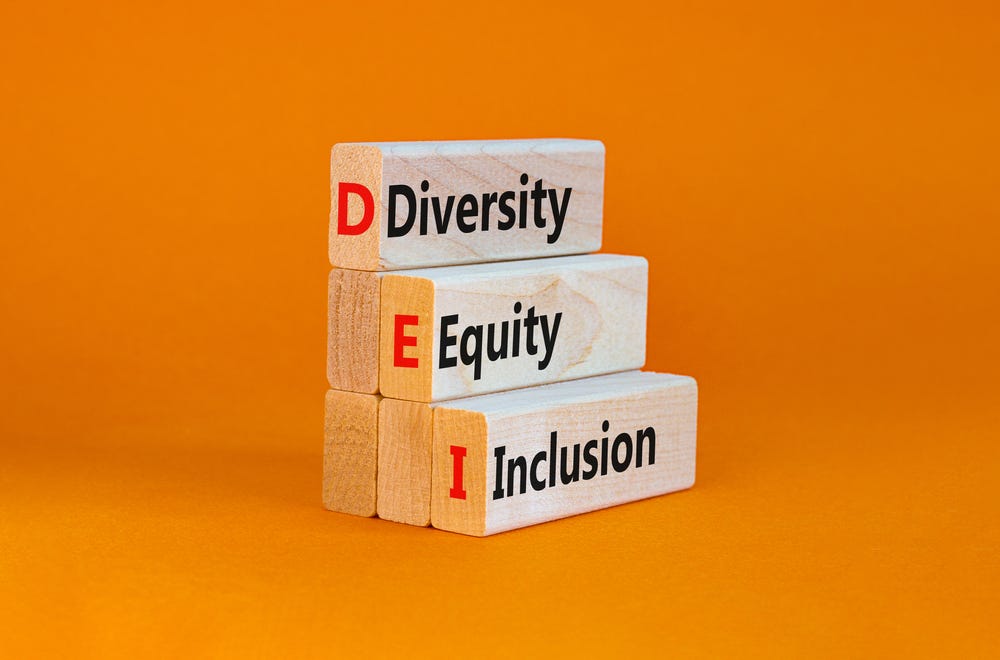E-Pluribus | August 26, 2022
Is woke just the new political correctness, Canada funds an anti-racist racist, and how DEI divides us.
A round-up of the latest and best writing and musings on the rise of illiberalism in the public discourse:
Phoebe Maltz Bovy: Is “Woke” just PC with faster internet?
In the 1990s, many of our culture wars revolved around the idea of “political correctness,” a form of self-censorship that dictated “polite” ways of describing the world around you. After finding a parody book called The Official Politically Correct Dictionary and Handbook, Phoebe Maltz Bovy compares the PC era with our current battle over “wokeness” at Freddy deBoer’s Substack.
Best as I can tell, PC wasn’t a force dividing society, Dreyfus Affair-style, the way one’s stance with respect to wokeness can be. (People who remember the 1990s better than I did, or just who didn’t grow up in apartments: were there rival yard signs? I don’t mean for politicians, I mean “In this house we believe”-style.) The general reality was just that certain liberals, on college campuses or in rich-progressive neighborhoods, were uptight. Others, equally liberal, had a different, more low-key approach and could take a joke. Someone, somewhere, doubtless used womyn instead of women. But the chances that you personally would be shamed for writing “women” were remote. Maybe you’d get in trouble for saying the wrong thing. But maybe no one would care if you questioned the whole project of punishing people for saying the wrong thing.
The PC dictionary really is just that, a glossary-format guide to the PC and non-PC terms for various genders, animals, concepts. The entries often have footnotes, some leading to university statements and the like, others to earlier parodies.
If the exact terminology sometimes differs, many of the concerns of that era overlap with ours. Apparently “writing about communities of which one is not a member” was frowned upon. There are gender-neutral pronouns, but it’s “tey” and “tem” rather than “they/them.” “Sex worker” is preferred over “prostitute,” “houseless” over “homeless,” “enslaved person” over “slave.” “Swapping sex partners” is to be called “consensual nonmonogamy.” Person-first language (a person with a condition, etc.) comes up quite a bit. Considering this was all before social media, the sheer Tumblr-ness of it all is striking.
As for differences? There’s a lot more about animals than one sees these days: veganism, but also speciesism and pet ownership. And while gender neutrality comes up frequently, intersexuality occasionally, the entire concept of transgender, transsexual, or non-binary identity never appears. It’s the gender neutrality, I suppose, of 1990s feminism, the idea that it’s sexist to draw attention to a woman’s gender by using a term like actress, rather than that there are people who personally refuse male or female pronouns and require a different set, or whose own pronouns changed in the course of their lives.
Read it all.
Jonathan Kay: The Line Between Anti-Racism and Racism Keeps Getting Fainter
If a bigot promotes their ideas using progressive jargon, can they really be called “anti-racist”? That’s what Jonathan Kay explores at Quillette in light of news that the Canadian government has been funding an “anti-racism” effort within the Canadian broadcasting industry led by an outspoken anti-semite.
There are few politicians who’ve embraced the anti-racism movement more fervently than Canadian Prime Minister Justin Trudeau. With great fanfare, his government has launched multiple programs intended to eradicate the “racism, discrimination, and xenophobia” that Trudeau describes as being a major contaminant within Canadian society. Alas, it has now been revealed that a major beneficiary of this Liberal anti-racism largesse is one of Canada’s most outspoken bigots, whose company was promised C$130,000 (about US$107,000) in public funds to mount a six-city national tour aimed at “building an anti-racism strategy” within the Canadian broadcasting industry. And the resulting scandal has become international news.
The bigot in question is Laith Marouf, a fanatical Palestinian-rights activist and one-time campus firebrand whose activities I’ve been following, on and off, for two decades—beginning with his 2001 expulsion from Concordia University in Montreal. Marouf had attacked a campus security guard who’d been trying to help apprehend him for spray-painting anti-Israeli graffiti on a local building. Yet he was able to get the expulsion overturned, and even held on to his gig as VP Internal with the Concordia Student Union (CSU) executive, whose membership was then largely intertwined with a militant student group known as Solidarity for Palestinian Human Rights (of which Marouf would become Chapter Coordinator).
[ . . . ]
One might imagine that these developments would have career-limiting implications for Marouf, a Syrian citizen whose father had been sent to Montreal on diplomatic assignment by Hafez al-Assad’s regime. Yet Marouf somehow managed to scratch out a Canadian career as a community activist, equity officer, radio host, and, most recently, government-bankrolled anti-racism consultant—all without making any effort to hide his antisemitic views. As well as posting hateful comments on social media, he’s also become a regular on Russian and Iranian propaganda outlets, spouting conspiracy theories about Israel, the war in Ukraine, and the Zionist machinations of the international media.
In an era when people can get fired for clicking the like button on a problematic social-media post or using the wrong pronoun, this out-and-proud hatemonger has—until just days ago—maintained his entree with Canadian broadcast regulators, even while tweeting that “there are none on this earth more cunty than Zionists”; describing his desire to beat up “ugly inbred fucking Zionist Colonist tourists”; rhapsodizing about the coming liberation of Palestine, when “all those loud mouthed bags of human feces, aka the Jewish White Supremacists … will return to being low-voiced bitches of their Christian/Secular white supremacist masters”; and describing his personal “motto” as being that “Life is too short for shoes with laces, or for entertaining Jewish white supremacists with anything but a bullet to the head.”
Read the full piece.
Angel Eduardo: DEI can be a good thing, but it often isn't
At the Foundation Against Intolerance & Racism’s Substack, Angel Eduardo recounts his experience with Diversity, Equity, and Inclusion trainings at his former workplace and concludes that they can end up perpetuating divisiveness and intolerance where it didn’t exist before.
Thankfully, these divisive strategies are not our only options. There is a way to counteract bias, bigotry, and belligerence in a way that doesn’t inadvertently reflect, exacerbate, and perpetuate it. It’s by having a bit of patience and grace, the way the HR people did with me when I was crossing the line with my humor at work. It’s by granting the same forgiveness and compassion we would appreciate when we slip up and lose our cool. It’s by emphasizing our common humanity and our unique individuality, the way I suggested handling the mix-up at my old job.
I’m not against DEI trainings—not in principle. There are plenty of issues in our society that need addressing, including issues of racism and intolerance. Bias and bigotry are real issues, and they can sometimes go either unnoticed or unaddressed. There is a role for programs and protocols that call out mistreatment and misunderstandings between coworkers, blind spots in hiring practices, and structural issues that inhibit individual progress, in ways that are constructive rather than presumptive, resentful, and retributive.
Read it all.
Around Twitter
Twitter’s founder and former CEO Jack Dorsey regrets . . . Twitter, Inc.
Is MAGAism semi-fascism? What even is that?








